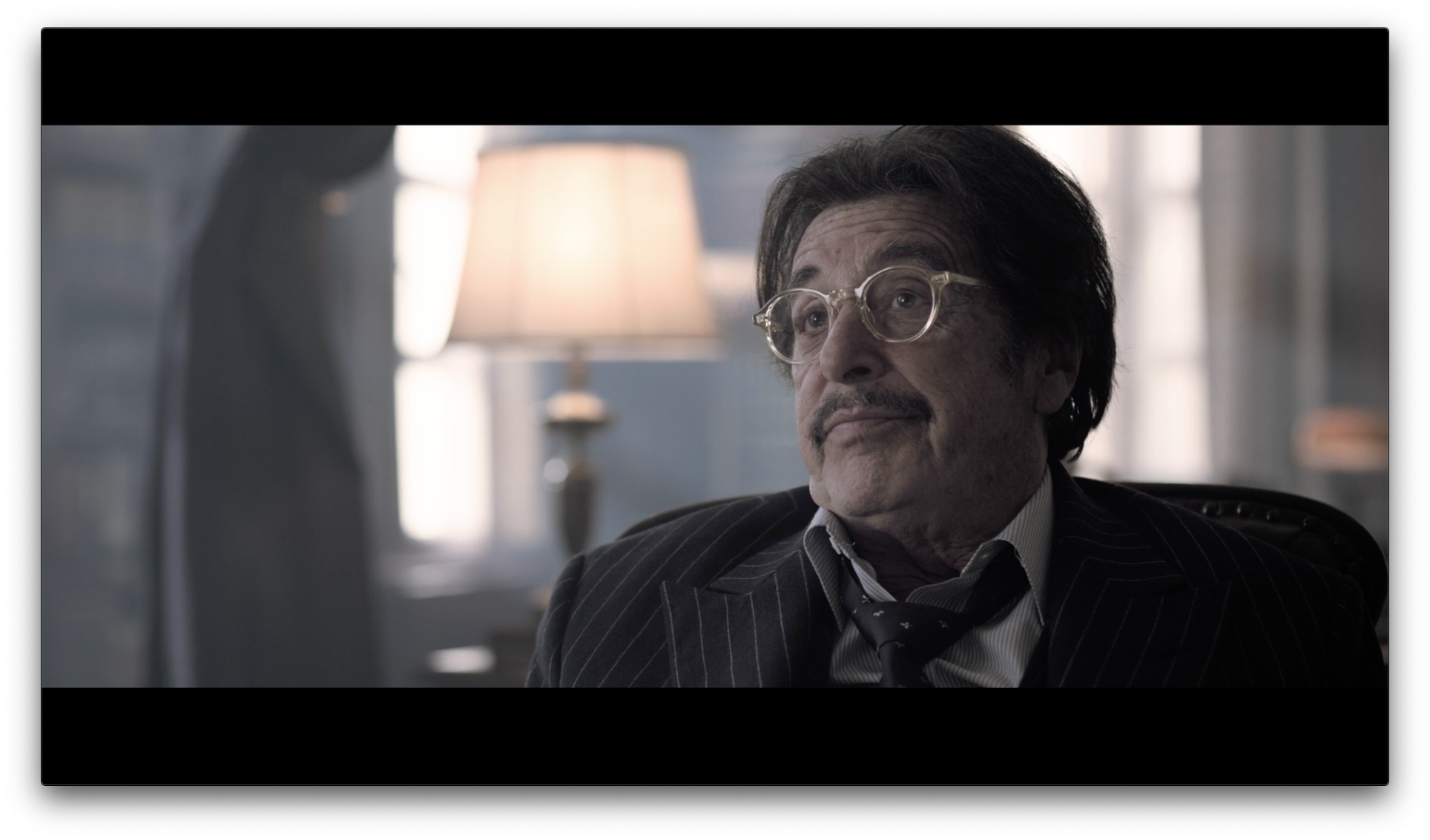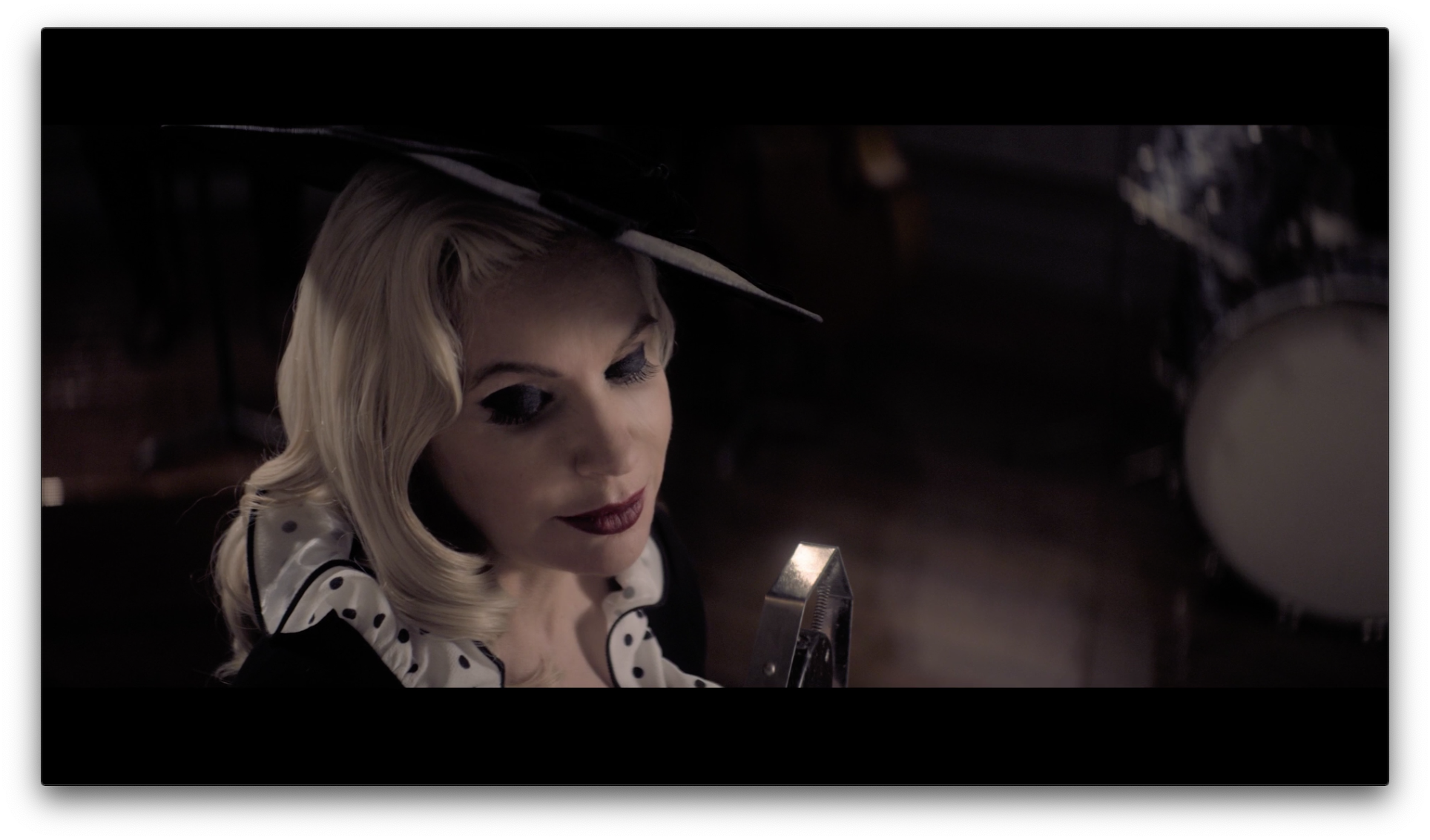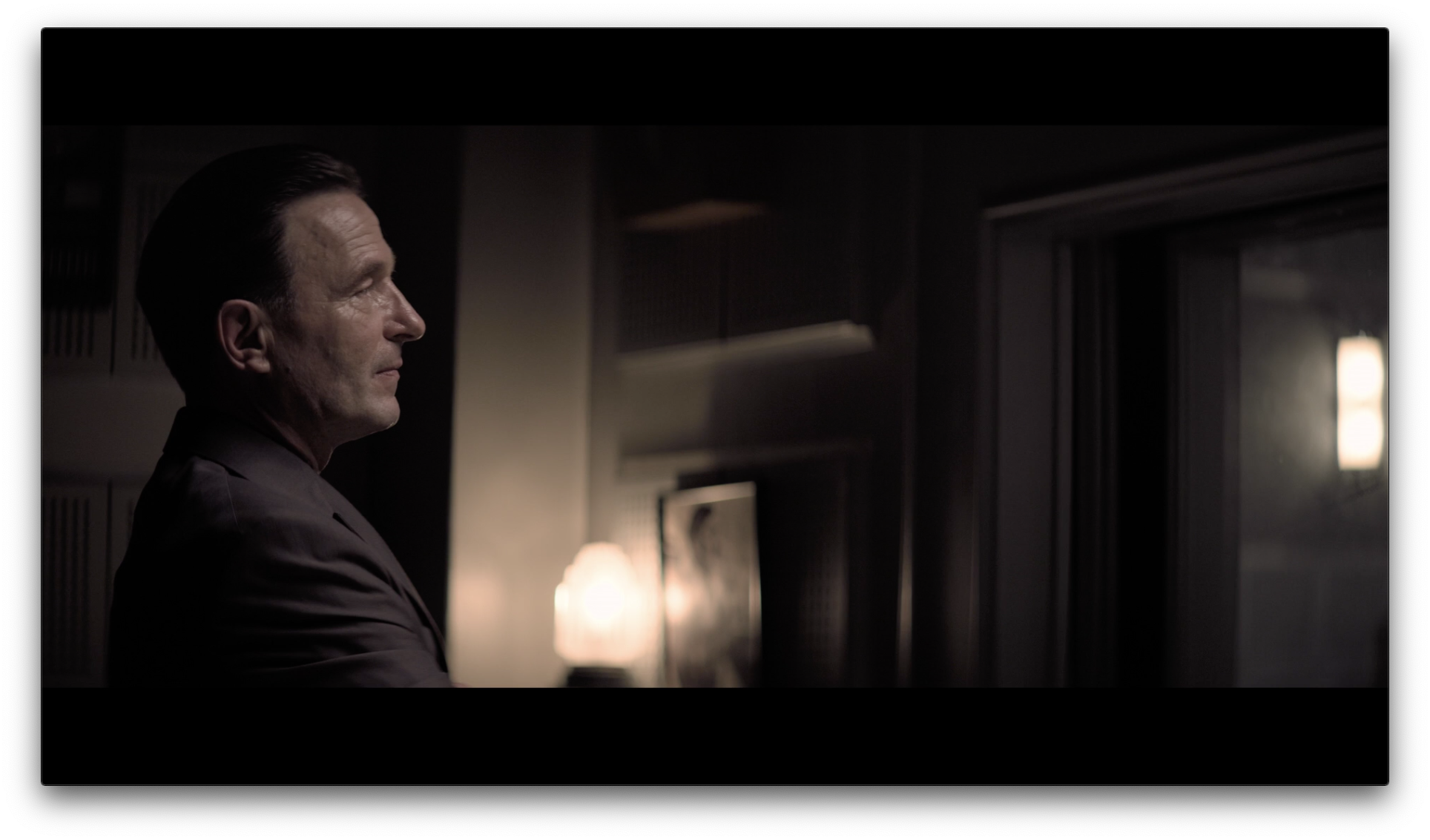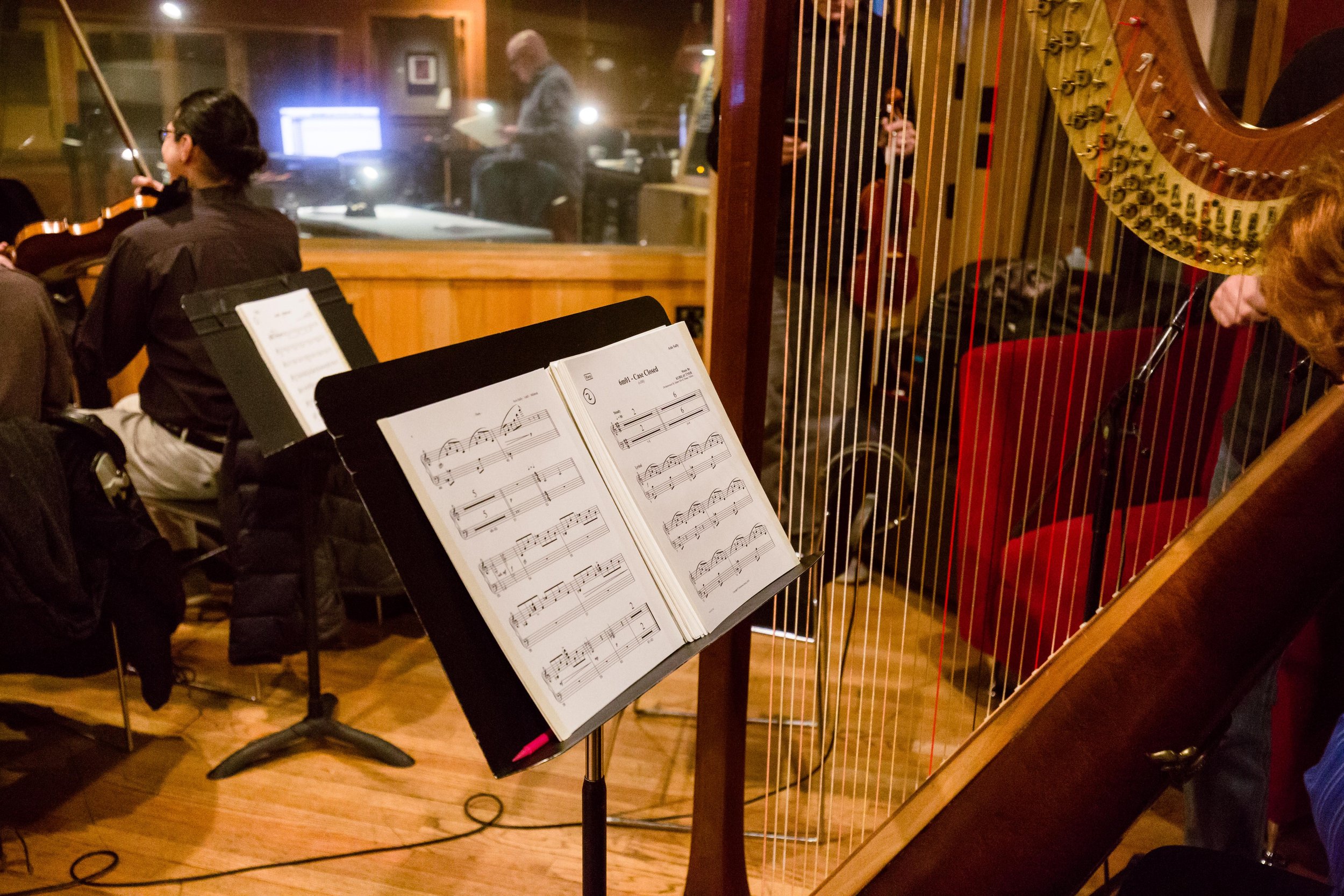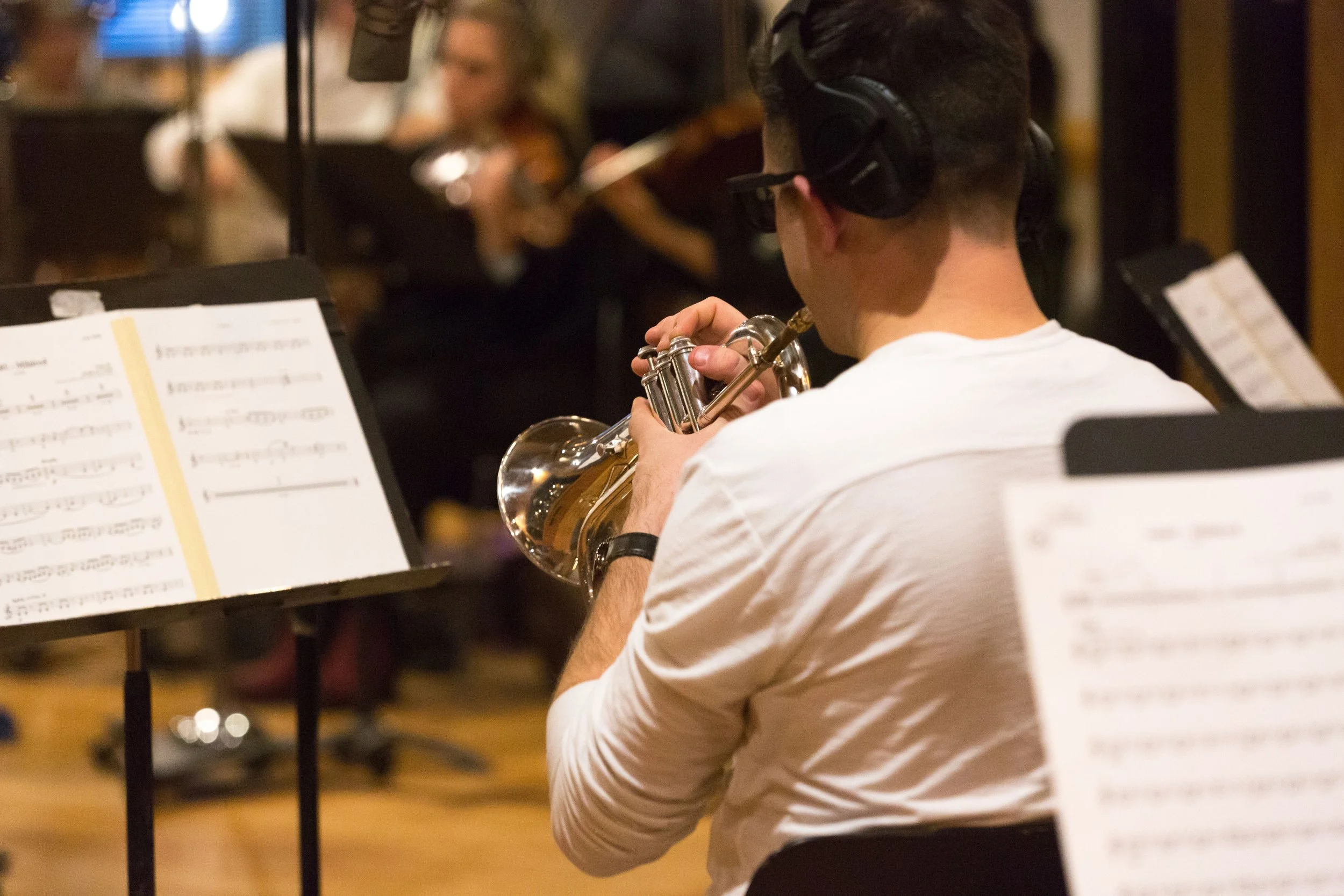For you consideration at the SCL Awards in the category of Outstanding Original Score for an Independent Film
Kubilay Uner: American Traitor: The Trial of Axis Sally
Starring Al Pacino, Meadow Williams and Thomas Kretschmann, this stylized neo-noir drama tells the true story of Mildred Gillars, who was an American broadcaster employed by Nazi Germany to disseminate Axis propaganda during World War II. Dubbed “Axis Sally” by her listeners, she became the first woman to be convicted of treason against the United States following her capture in post-war Berlin.
Final round voting is now open at this link until February 25, 2022. Must be a full voting SCL member in good standing to cast a ballot. Thank you!
SCORING THE CHALLENGE, ORCHESTRATING THE LOOK
How do you score a person of questionable character? As with all good protagonists, there is a human underneath undoubtedly immoral choices. Complex characters require complex music - but in the case of Axis Sally, a complexity that invites, seduces, even tries to justify itself. The tradition of noir scoring, blended with the sounds of the salon orchestra typical of the era, provided the blueprint: Opulent shifting harmonies topped with melodic lines that ambiguously convey a corrupt, seductive beauty.
Rich hues and stylized visuals demanded an equally rich, stylized sound. This film could only be scored live - and we did it here in the United States. The harp, vibraphone and small string section of our Salon orchestra are led by the warmest of instruments: alto flute, classical-style alto sax, french horn, and flugelhorn. More often than not, the strings play with mutes. And in those scenes where we get to gaze straight into the abyss that is Nazi propaganda minister Joseph Goebbels (played by Thomas Kretschmann), the contrabass clarinet provides a controlled, pitch-black darkness.
Final round voting is now open at this link until February 25, 2022. Must be a full voting SCL member in good standing to cast a ballot. Thank you!
THE MANY FACES OF MILDRED
Mildred’s story makes little sense unless we feel the human behind all her choices. So the majority of cues are variations of her main theme that you see in the handwritten sketch below: A rich, classic noir theme in harmonic minor, reflecting the complexity of her character, but also showing how she likes to see herself - mysterious, seductive, in charge. The B-section, switching to 4/4, takes a shot at sounding almost triumphant, it’s how she would have liked the story to end - until it all unravels and tumbles, spinning out in a small repeating gesture.
MIldred’s Theme, the basis for most of the score
Here the “Mildred Enters Courtroom” cue as a MIDI piano roll. Orange is the alto sax, pink the flugelhorn, purple the french horn, dark blue the vibraphone, light blue the harp, and green the strings. (Of course there’s a whole lot of overlapping.) The audio you hear is the final live recording - the MIDI was only used as mockup in the scoring process, and to create the score and parts for the recording session.
Final round voting is now open at this link until February 25, 2022. Must be a full voting SCL member in good standing to cast a ballot. Thank you!
THE MANY FACES OF MILDRED - THE SEDUCTRESS
As Axis Sally, Mildred reduces herself to the essential, a hypnotic focused seduction intended to shift the ground under the feet of her listeners, carrying them from C minor to Bb minor without their noticing. And once she has a few of them follow her there, she returns back to the original key to fetch some more. Once she made all her arguments after the A sections are finished, in the B section she abandons persuasion in favor of simple, almost sensual hypnotic repetitions, until she closes the trap at the very end.
The “Seduction” variation of Mildred’s theme
THE MANY FACES OF MILDRED - PAIN & TRAGEDY
Mildred the woman knows pain, and this is the music that goes with it. This is the “un-triumphant” Mildred, so it is a variation of her main theme’s quasi-triumphant B-section - but essentially backwards. This is also Mildred at her most honest, vulnerable, real, human. This is a woman whose life could have gone differently, and who deep down knows she has no one to blame but herself that it did not.
Final round voting is now open at this link until February 25, 2022. Must be a full voting SCL member in good standing to cast a ballot. Thank you!
SETTING THE SCENE - THE OPENING
A lot of exposition was needed to start this story off. Newsreel footage and excerpts of Axis Sally’s broadcast during the first couple of minutes of the film use a distant, subtly driving variation of Mildred’s theme. As the film switches from 4:3 and b&w to widescreen and the film’s rich, muted color range, the orchestra widens as well.
CLICK HERE for a PDF of the “Mildred” (opening cue) concert score.
LAUGHLIN
One of the highlights of my work on this film was scoring Al Pacino’s larger-than-life character, James Laughlin - Mildred Gillars’ lawyer in the post-war treason trial. He is not part of Mildred’s world. His complexity is of a very different sort. He is a sportsman, he did not choose the case, but now that it’s his, he will play to win. Yet beneath the wit and showmanship is a pain, a pain different from the regrets of a deeply damaged woman - the pain of a father who lost his son to the war. In a few scenes where his playfulness is on full display, it was important for the music to help show his depth, without getting in the way of his levity.
Al Pacino as James Laughlin
Final round voting is now open at this link until February 25, 2022. Must be a full voting SCL member in good standing to cast a ballot. Thank you!
THE MONSTER
Mildred is a human being making deeply immoral choices. Goebbels is a monster. But he, too, plays the game of seduction as he lays out his coldly reasoned Darwinian arguments of why the Reich is the future of human civilization. So there are two parts to his theme. One is the pitch-black, quietly snarling music of a monster whose complete absence of morality makes it questionable to even call him “evil” in a human sense. The other is calculated, persuasive seduction that is almost a variation of Mildred’s seduction theme, but while hers is a siren call to lie down and surrender to her embrace, his is an insistent tug to let yourself be pulled up and rise in his service.
RECITATIVO
There are a few dialog-intensive scenes in the film that recall recitativos in classic operas - moments that need to have musical thrust and very nuanced dramatic emotion, but have to provide those while carefully carrying the words, one by one, without stepping on them in the least. "Waiting for Judgment" is one such scene, beginning under the closing words of Mildred's lawyer Laughlin, then carefully setting the stage for Mildred to open up to Laughlin's assistant Billy as she awaits judgment in her cell. Throughout Mildred's story the music needs to do justice to the color and intensity of each moment - from the dark memories that alternate between anger, regret and self-pity, to the welling-up of emotion as Mildred remembers the love of her life, back to her resignation - while at the same time creating a clear sense of form, to carry the audience through the monologue and tie the emotions together for them in a visceral manner. And the score has to do all this with a complexity appropriate for Mildred, the character - whose culpability is beyond question (except for maybe to her), but whose human emotions are no less real because of it. All the material is of course based on Mildred’s theme, see the hand-written sketch higher up on this page.
CLICK HERE for a PDF of the “Waiting for Judgment” concert score
Final round voting is now open at this link until February 25, 2022. Must be a full voting SCL member in good standing to cast a ballot. Thank you!
SCORING OVER SOURCE
One of the key scenes in the story involves a radio play titled “Visions of Invasion”, a melodrama designed to sap the morale of the American troops before the Normandie landing by describing in detail the grief of the mother of a fallen allied soldier. The flashbacks to the play are intercut with the courtroom proceedings around it. This scene required two entirely different pieces of music to trade off with one another - an overtly emotional source piece played by the radio band (see handwritten sketch below), and dramatic score describing the persistently tightening noose in the courtroom. The band piece is a simple, naive chorale, befitting the openly manipulative, heart-strings-tugging character of the radio play, while the score cue, played solely by the strings and harp to differentiate it sonically from the band’s radio play music, features very high strings representing the jeopardy Mildred finds herself in, combined with a persistent repetition of the rising half step - full step - half step motif at the heart of Mildred’s main theme, see the handwritten sketch earlier on this page.
CLICK HERE for a PDF of the “Visions of Invasion” concert score
Final round voting is now open at this link until February 25, 2022. Must be a full voting SCL member in good standing to cast a ballot. Thank you!
THE PEOPLE
It takes a village to complete any film score, and all the more this one, because this score had to be played live. The humanity, passion and emotion of Chicago’s music professionals permeates every note. There are pictures throughout this page of the musicians who brought this music to life. A special shoutout to conductor Allen Tinkham, recording engineer Mathew Prock, and composers Adam Dib and Tomas Videla, who acted as my orchestrators and led score preparation, plus of course our score prep team, composers Alex Brinkley, Thomas Eggensberger, Alexis Kwaben, Dylan Love, Catherine Nguyen, and Brandon Stanley.
Allen Tinkham conducting American Traitor: The Trial of Axis Sally
Orchestrator Adam Dib at the session
Recording engineer Mathew Prock
Final round voting is now open at this link until February 25, 2022. Must be a full voting SCL member in good standing to cast a ballot. Thank you!







